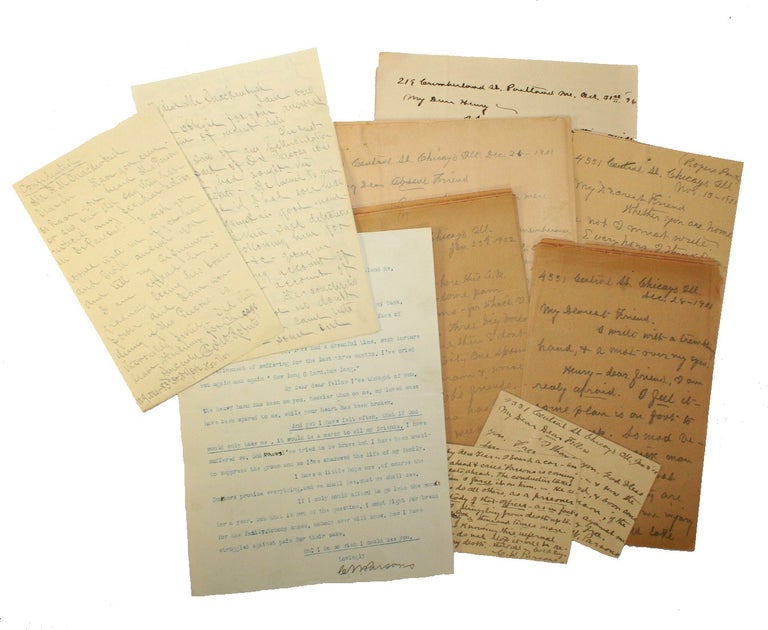
Manuscript Archive of a Paranoid, Cocaine-Addicted Minister, Writing to Inventor and Manufacturer Henry M. Quackenbush, 1895-1902
A fascinating archive of letters from Rev. Charles Wesley Parsons (1851-1907) to his close friend Henry M. Quackenbush (1847-1933), gun manufacturer and inventor of the extension ladder and the nutcracker. Once a highly respected Methodist Episcopal minister, by his late forties Parsons had begun to suffer severely from both the symptoms and the treatment of tic douloureux (also called trigeminal neuralgia), a neurologic disorder that causes intense pain in the face. The pain was treated with topical cocaine, which over time caused Parsons to experience paranoia and hallucinations. In series of letters written to Quackenbush between 1895 and 1902, Parsons writes repeatedly of being watched in his home, followed by detectives and "sneaks," and harassed by gangs and policemen. On December 26, 1901, he writes:
I’ve been so persecuted & abused. Oh, Henry, it isn’t my imagination. Two men sent to Watertown to destroy me & gave their whole time to doing everything that hellish malice could invent. I am weak, sick man, sitting on my bed, in my room half the time in pain, was under the eyes of a paid sneak (Emma too) night and day – a gang formed -- and they hounded and pursued my every step. If I dared go out the doors, one would stand on the corner, wave a signal, one on to the next, and turn and sneer in my face and say "You are our slave, belong to us." And I never committed a crime or immoral act in my life. … And the police in sympathy with it. Oh, your blood would have boiled if you had been by my side. This poor, weak American Citizen dared to board a train to go down town to get some Christmas things. A uniformed police officer slipped on the car ahead of me and cried, "Parsons is coming – don’t watch him." He might just as well have said, "Watch him" – for everybody looked out of the corner of the eye at me, as though I was an insane person – and 20 went ahead and they were the gang organized to kill me, and one stood on every corner ahead of me and said "Parsons is coming, watch him." And a thousand persons passed me by as though as pestilence. Oh it is awful.
On January 28, 1902, he told Quackenbush he was out of cocaine and desperate for more to ease the pain, asking Will you please (I beg) send me by the quickest way possible (mail, I think best) one oz. of cocaine…. The next letter thanks his friend for the package, saying the pain has diminished, but reports that they tapped the wires of our telephone, put a microphone on and heard every word spoken in our house. And on March 9: I am cutting down, and by summer will hardly use any at all…This is the last time I’ll ask it of you, I feel sure – just mail me one more oz. of cocaine…
The archive includes 17 letters and a postcard from Parsons to Quackenbush (three typed and the rest handwritten, c. 70 pages in all), as well as 3 letters to Quackenbush from a mutual friend, expressing concern that Parsons' "brain power" is failing and enclosing two postcards he received from Parsons complaining of abuse by the police. In all, a compelling archive offering firsthand insight into addiction and the treatment of chronic pain at the turn of the twentieth century.
Item #18131
Sold


